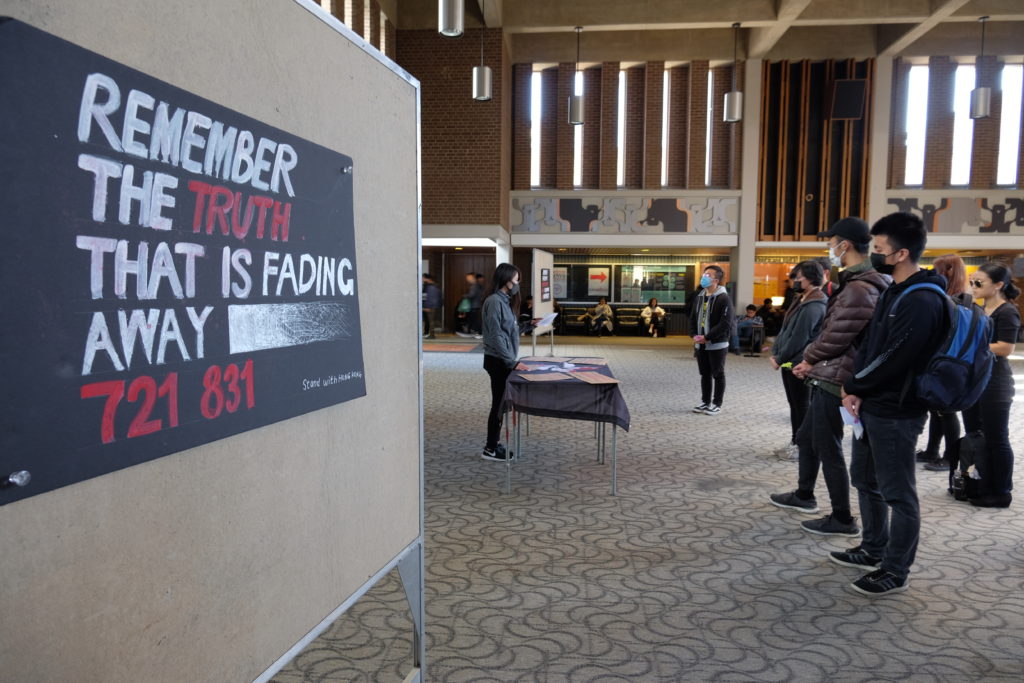
Students at UW held a vigil on Oct. 28 at SLC Great Hall for Hong Kong protestors who have died in riots against the encroaching Chinese government.
“This vigil is for all the people, not just those who comitted suicide but the 144 ‘suspicious deaths,’” the organizer of the vigil said.
The organizer, who wished to remain anonymous fearing retribution from the Chinese government, said the victims who died have been declared ‘suicide cases’ by the police. Most victims were identified as activists or protestors arrested by the police during the riots.
“We have found bodies in the water with hands tied in the back. When we called the police to inquire, they told us these were suicides, but [it] makes no sense,” he said.
Protests have rocked Hong Kong every weekend since Mar. 31. On July 21, the organizer said armed, masked men claiming to be police took to the streets. The masked men attacked both protestors and bystanders alike in the city’s subway stations. There are still three people missing following the Hong Kong subway attack.
“Since then, there has been a huge increase in these so-called ‘suicide cases’ following the weekend protests,” the organizer said.
He said Hong Kong is in a de facto civil war between the Chinese government, the Hong Kong government, and Hong Kongers.
The movement began with a single bill called the Hong Kong-China extradition bill, which would allow the Chinese government to arrest anyone in Hong Kong, and freeze their assets at any time. The law contradicts to the ‘One country, two systems’ constitutional principle that was created for th reunification of China during the early 1980s. The system allowed Hong Kong and Macau to continue to have their own governmental system, legal, economic and financial affairs, including trade relations with foreign countries, all of which were supposedly independent from those of Mainland China.
“Citizens of Hong Kong are protesting against the bill because basically China is trying to resolve the ‘One country, two systems’ policy that was promised,” the organizer said.
Although the government has withdrawn the bill, the citizens continue to protest and are not willing to settle until the remaining four demands of theirs are heard which include retracting the government’s labelling the protests as ‘riots,’ releasing arrested protesters, calling into question the level of force used by the police during the protests and establishing a true democratic system for selecting Hong Kong’s Chief Executive.





























